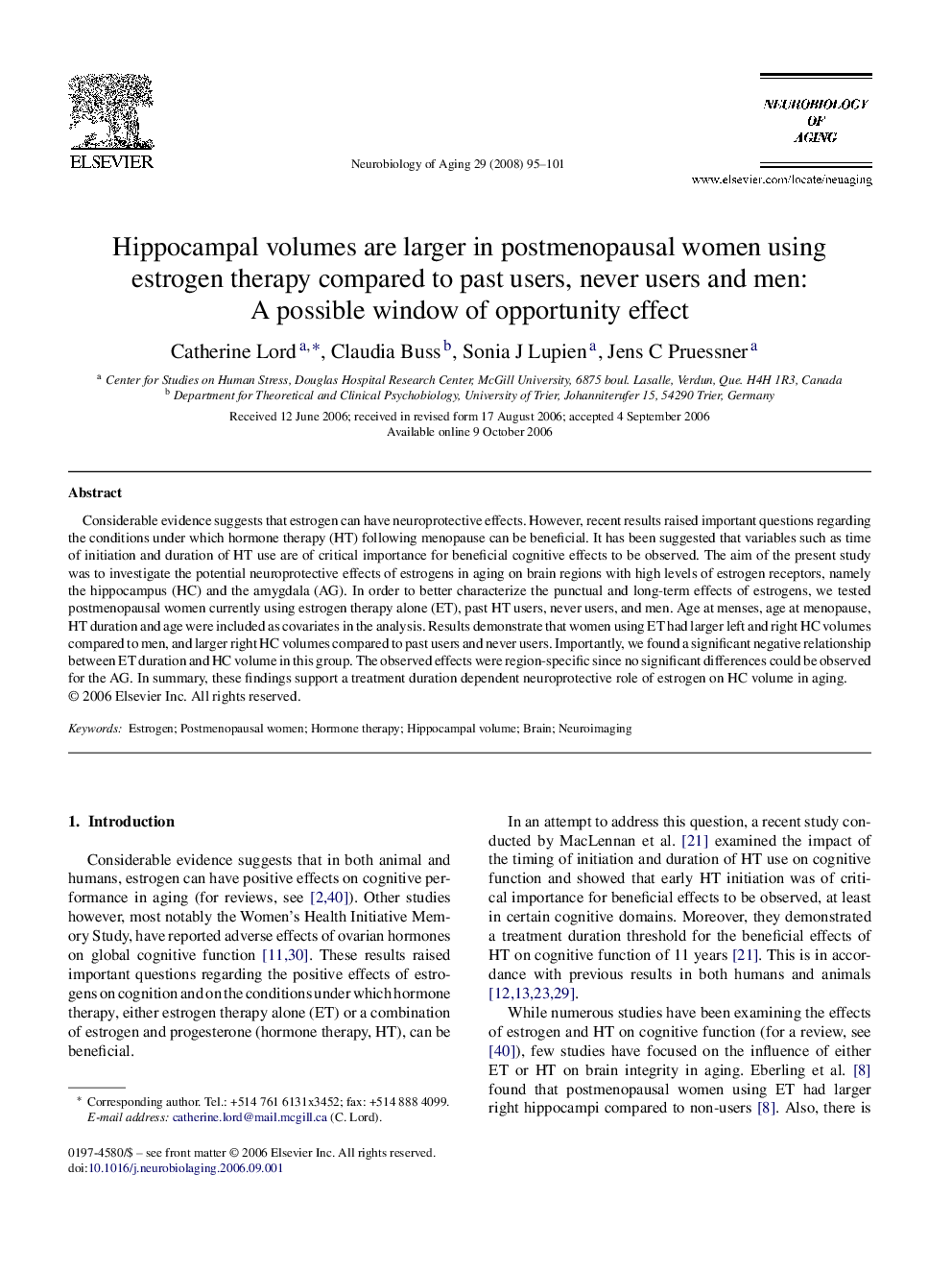| Article ID | Journal | Published Year | Pages | File Type |
|---|---|---|---|---|
| 331192 | Neurobiology of Aging | 2008 | 7 Pages |
Considerable evidence suggests that estrogen can have neuroprotective effects. However, recent results raised important questions regarding the conditions under which hormone therapy (HT) following menopause can be beneficial. It has been suggested that variables such as time of initiation and duration of HT use are of critical importance for beneficial cognitive effects to be observed. The aim of the present study was to investigate the potential neuroprotective effects of estrogens in aging on brain regions with high levels of estrogen receptors, namely the hippocampus (HC) and the amygdala (AG). In order to better characterize the punctual and long-term effects of estrogens, we tested postmenopausal women currently using estrogen therapy alone (ET), past HT users, never users, and men. Age at menses, age at menopause, HT duration and age were included as covariates in the analysis. Results demonstrate that women using ET had larger left and right HC volumes compared to men, and larger right HC volumes compared to past users and never users. Importantly, we found a significant negative relationship between ET duration and HC volume in this group. The observed effects were region-specific since no significant differences could be observed for the AG. In summary, these findings support a treatment duration dependent neuroprotective role of estrogen on HC volume in aging.
